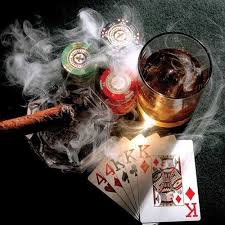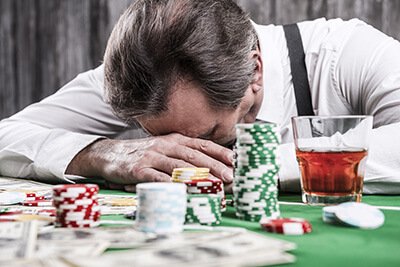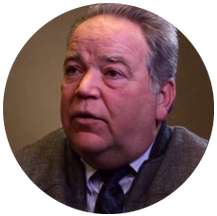In my years of helping problem gamblers who come through Maryhaven, I’ve found many times that gambling addiction isn’t their only problem.
My experience as a counselor echoes available clinical research. The disease of pathological gambling often represents a “double down.” This means that clients struggle with other mental health or substance abuse illnesses – we call them co-occurring disorders – that also require treatment. A national epidemiological survey conducted by the Substance Abuse and Mental Health Services Administration found that almost three-quarters of pathological gamblers also cope with alcoholism. Nearly 61 percent are experiencing a personality disorder and almost half have a mood or anxiety disorder. This survey identified one other frightening statistic. Between 15 and 20 percent of pathological gamblers report suicidal thoughts or “ideations.”
One person, let’s call him George, vented his frustration clearly and eloquently one day during a group session on recovery from alcoholism. He fumed, “It seems whenever I gamble, I have a much harder time not drinking. And if I drink, my gambling really takes off. I just wish I could stop.”
George is certainly far from alone. Just as research on problem gamblers documents their co-occurring disorders, we also find corresponding high rates of substance abusers who are pathological gamblers. A researcher in Maryland found that the prevalence of problem gambling is ten times higher among the substance abuse population.
These realities are why Maryhaven regularly assesses people for gambling issues even when they came to us because of substance abuse. We rely on questions such as:
- Do you become restless, irritable or anxious when trying to stop or cut down on gambling?
- Have you tried to keep your family or friends from knowing how much you’ve gambled?
- Has your gambling affected your finances to the point that you’ve asked family or friends for help to meet your living expenses?
 Just one “yes” signals that the person may warrant a dual diagnosis. And, we use similar questions about substance abuse when screening people who come to us because of gambling.
Just one “yes” signals that the person may warrant a dual diagnosis. And, we use similar questions about substance abuse when screening people who come to us because of gambling.
Further, we also know some people in recovery from alcohol or drug abuse “switch addictions” and develop into a problem gambler. This occurs typically because people recovering from addiction feel weighed down by depression. They can’t sleep, lose interest in activities, and are overwhelmed by feelings of worthlessness or guilt. Some turn to gambling as a way to relieve stress and retrieve some sense of control over their lives. Others fall prey to the trap of thinking gambling will help them be “normal” or “winners.”
Whether we’re working with someone who came to us because of gambling or because of drugs and alcohol, we intentionally treat all the challenges they face. This may mean coordinated but separate treatment protocols or it may mean an integrated treatment process. After all, our core practice of cognitive behavioral therapy teaches universal skills, such as healthy, safe coping skills to reduce stress and methods to build or rebuild supportive relationships with friends and family. If appropriate, we augment individual or group counseling with peer recovery or 12-step groups and/or medically-assisted treatment.
Maryhaven can help you or a loved one dealing with gambling addiction or another mental health or substance abuse disease. And we’ll help you deal with them in a comprehensive, coordinated and caring way. Give us a call and let us be your holistic behavioral and addiction health specialists.
Call 614-324-5425 or contact us confidentially online today.

